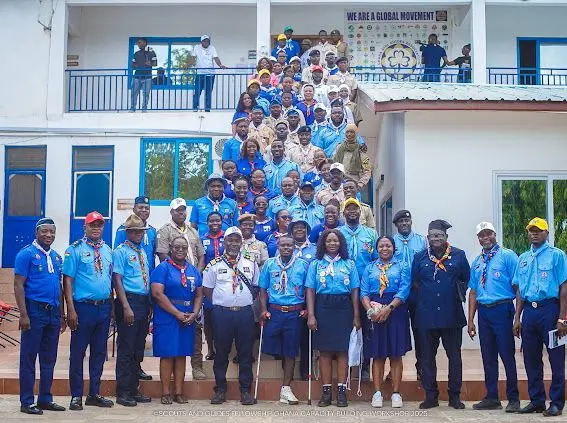The Merian Institute for Advanced Studies in Africa (MIASA) recently hosted a conference that served as a crucial forum for examining the role of cash in Africa today, set against the backdrop of increasingly popular digital payment systems. The conference, centered around the theme “Cash in Crisis in Africa: Navigating Financial Realities in Times of Disruption,” brought together scholars, policymakers, and financial experts to discuss the complexities of Africa’s evolving financial landscape. One of the key questions explored was how African societies are managing the coexistence of traditional financial tools and emerging technologies, especially when facing economic shocks. As digital solutions gain traction, the conference shed light on why cash remains an indispensable part of life for millions across the continent.
Fabio Knümann of Deutsche Bundesbank was among the experts providing insights, emphasizing that cash remains a vital instrument. He noted its enduring presence in everyday transactions, highlighting its continued importance, particularly in a region undergoing rapid technological transformation.
Despite the increasing availability and use of digital payment systems, cash continues to play a central role in the daily lives of many people across the world, and especially in Africa. Referencing data from the South African Reserve Bank, Knümann pointed out that 56% of respondents indicated they had used cash in their most recent transaction. This statistic underscores the point that digital finance has not completely displaced traditional methods, and that cash remains a significant payment method for a large segment of the population.
Physical money, it turns out, commands a unique kind of trust, particularly within informal economies. Knümann recounted a telling anecdote about a vegetable vendor in northern Namibia who prefers cash because, as she put it, “If I can hold it, I can trust it.” This simple statement encapsulates the deep-seated confidence many individuals place in physical currency, a sentiment that digital systems have yet to fully replicate.
During times of crisis—whether a pandemic or a natural disaster—the demand for cash often surges, revealing its role as a reliable fallback. “Cash becomes a fallback,” Knümann explained. “It works unconditionally—without passwords, apps or electricity.” This accessibility is especially critical in areas where digital infrastructure is unreliable or nonexistent, making cash a crucial resource for survival and stability.
The conference participants cautioned against adopting a ‘one-size-fits-all’ approach to payment systems in Africa. As Knümann argued, what works in one region may not be suitable or sustainable in another. There is no single African or European payment culture.
Instead, experts advocated for a hybrid infrastructure that supports both digital and cash options, thereby offering resilience and choice to users. This approach recognizes the diverse needs and circumstances of different communities, ensuring that financial systems are adaptable and inclusive.
Several best practices for maintaining cash availability in Africa were discussed, highlighting strategies that have proven effective in both urban and remote areas. These include the Bank of Ghana’s strategic distribution policy and South Africa’s community partnerships aimed at ensuring cash availability in underbanked regions.
Knümann praised these measures, stating, “These are practical, data-driven measures that treat cash as a form of public good.” This perspective underscores the importance of viewing cash not just as a payment method, but as a vital component of the social and economic infrastructure.
The discussions also highlighted the importance of inclusive policy design, with a focus on identifying and addressing the needs of groups often overlooked in payment infrastructure planning. These groups include the elderly, visually impaired, and rural dwellers, who are disproportionately affected by changes in cash access but are rarely consulted in the planning process.
The Bundesbank study presented three potential scenarios for the future of cash: a hyper-digital world with minimal cash usage; a “cash renaissance” where its benefits are rediscovered; and a slow marginalisation of cash where access dwindles and acceptance drops. These scenarios are not predictions, but rather tools for understanding the decisions and challenges we face today in shaping the future of payments.
Africa’s mobile money systems are recognized as innovative responses tailored to local needs, functioning even without stable network access and bridging informal and formal economies. The real opportunity lies not in imposing a single solution, but in integrating diverse perspectives to generate new ideas that fit specific contexts.
The MIASA conference highlighted the intricate relationship between cash and digital payment systems in Africa, revealing that while digital solutions offer numerous advantages, cash remains a critical resource, especially for vulnerable populations and during crises. The key conclusion was the necessity of inclusive policy design and a hybrid infrastructure that supports both cash and digital options, ensuring flexibility and choice. As Fabio Knümann aptly put it, valuing cash simply means using it, underscoring the shared responsibility in defining the future of payments in Africa.
Image Source: MYJOYONLINE



















